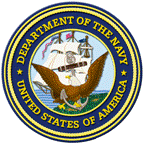United States Department of Defense

United States Navy: Publications
Date of this Version
2014
Citation
Carter, Walter E. Jr (2014) "President’s Forum: Setting the Conditions for Strategic Thought," Naval War College Review: Vol. 67 : No. 3 , Article 3.
Available at: https://digital-commons.usnwc.edu/nwc-review/vol67/iss3/3
Abstract
Sinc e 1884, the Naval War College has existed as a place to study and understand the complexity of conflict. As it prepares to celebrate its 130th anniversary, the College continues to refine its educational and research programs to meet the demands of the Navy and the national security community. The Naval War College is helping to prepare and shape the Navy of Tomorrow; and we are significantly supporting the Navy of Today.
The Navy of Tomorrow. A classic Asian proverb holds, If you are planning for one year, sow rice; if you are planning for a decade, plant trees; if you are planning for a lifetime, educate people. NWC is committed to helping ensure that America’s future military leaders are prepared to meet the challenges of the next decade and beyond. We at the College want and need to change as the global environment evolves, while reinforcing the successful initiatives and activities that have brought us to the high level of success we currently enjoy. The College continues to refine and enhance its resident and nonresident curricula to keep abreast of the evolving national security environment and fulfill the needs of future naval leaders and our joint forces. Moreover, we are expanding our reach to the entire Navy officer and enlisted ranks, while doing more to serve fleet commanders through tailored special programs. Refined course content, new course names, and awarding of two separate degrees will complete the course bifurcation process begun a decade ago and provide our graduates with education and the academic credentials clearly in line with their academic efforts.
The Navy of Today. A number of programs and initiatives focus on nearerterm outcomes. One example is the establishment of the Naval Leadership and Ethics Center (NLEC) as an operating unit of the Naval War College. This new organizational entity, an expansion and modernization of the former Navy Command Leadership School (CLS), will become the Navy’s primary location for training and educating officers and enlisted across all warfare communities, staff corps, and subspecialties in a wide range of leadership and ethical issues. All of the College’s programs and many of the NLEC curricula focus on reinforcing the “Desired Leader Attributes” identified by the Chairman of the Joint Chiefs of Staff, General Martin Dempsey. The military’s leaders must have the ability to understand the environment and the effects of all instruments of national power; to anticipate and adapt to surprise and uncertainty; to recognize change and lead transitions; to operate with commander’s intent through trust, empowerment, and understanding; to make ethical decisions based on the shared values of the profession of arms; and to think critically in applying joint warfighting principles and concepts to joint operations. In describing the value of Professional Military Education (PME), General Dempsey has said, “We can’t underinvest in professional military education or we will suffer challenges in the future. You just mortgage your future when you underinvest in professional military education.”
Included in
Adult and Continuing Education Commons, Adult and Continuing Education Administration Commons, Educational Leadership Commons

